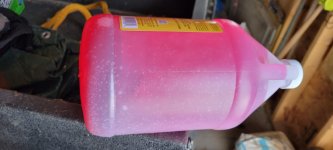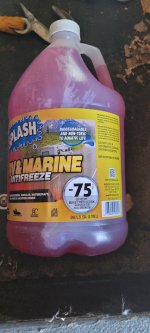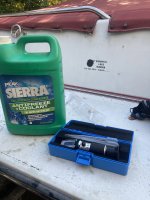Checked on on my summer place today, and happened to notice out of the corner of my eye that the jugs of -75 RV antifreeze were all sitting on the floor at an angle like there was something under them.
Turns out, RV antifreeze does a pretty good impression of a solid. It definitely expanded enough to bow out the bottom of the plastic jugs. Although there were some areas that looked a little like liquid, it definitely felt very solid.
Weather was about -13F last night, and had warmed up to about +5F.
In any case, if you have a use-case where expansion won't be a problem (sink P trap), not an issue, but if you have an engine filled with it, including relatively small water passages that might have had water mixed, you might have a problem at some point.
Turns out, RV antifreeze does a pretty good impression of a solid. It definitely expanded enough to bow out the bottom of the plastic jugs. Although there were some areas that looked a little like liquid, it definitely felt very solid.
Weather was about -13F last night, and had warmed up to about +5F.
In any case, if you have a use-case where expansion won't be a problem (sink P trap), not an issue, but if you have an engine filled with it, including relatively small water passages that might have had water mixed, you might have a problem at some point.






















